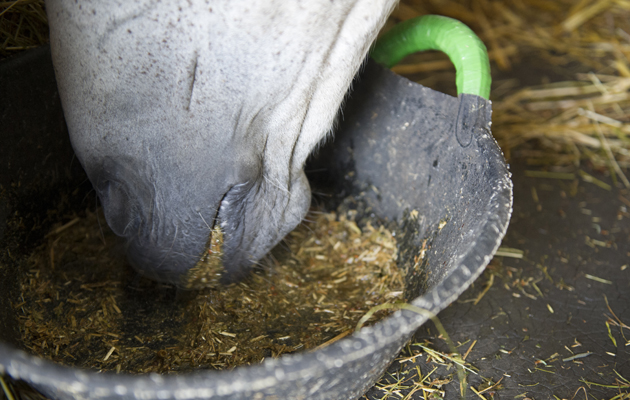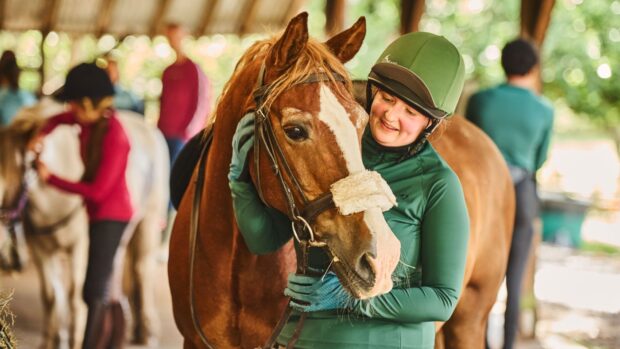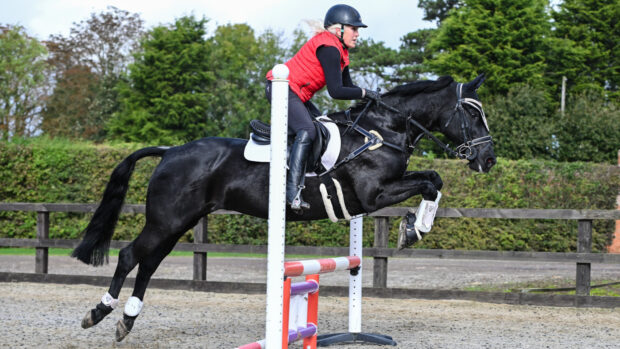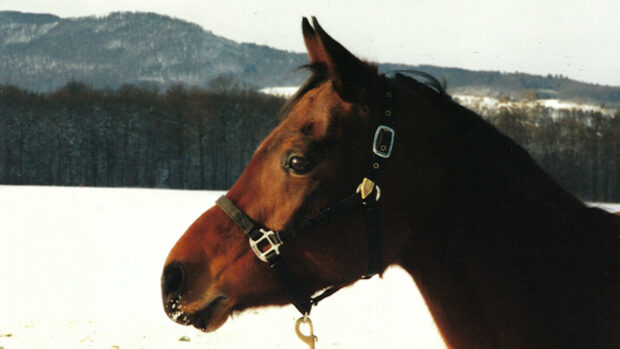Spillers' equine nutritionist Clare Barfoot provides one H&H forum user with some helpful advice on how to feed a veteran horse with Cushing's disease for better condition and while trying to avoid the onset of laminitis
Q: Putting weight on veteran horses: “I have three horses that live out all year round including a 24-year-old and a 20-year-old. They have always been very good doers, but are now looking a bit ribby in my opinion. The oldest one has Cushing’s, and the 20-year-old tested negative for Cushing’s, but he has been retired for three years due to arthritis. The vet has seen them, and thinks given their ages, they are OK, lacking in top line and muscle as to be expected, but I would like to get a bit more weight on them before we go into winter. Both are happy and well in themselves. Hay is put out for them all winter, and I have been putting some out for them over the past few weeks, but to be honest, they’re not overly interested and I end up throwing it on the muck heap after a couple of days. Any recommendations would be welcome — obviously I need to bear in mind the risk of laminitis, especially where the one with Cushing’s is concerned, although she has never had it in the past.”
A: Horses and ponies, just like humans, age at different rates and therefore the age that you would describe them as a ‘veteran’ will vary from early teens through to early 20s. The most accurate way of knowing when it is appropriate the change their diet is by looking out for the common signs of ageing which include weight loss particularly during the winter months, a loss of muscle tone and topline and poor dentition. Once you spot any of these early signs it’s time to take action. Firstly, make sure your horses’ regular worming and teeth checks are up to date and it is also a good idea to arrange a general health check especially if they have lost weight suddenly. Knowing the condition of your horse’s teeth gives you a good idea if they will still be able to manage long fibre (which might be why your horses are not eating up the hay you are putting out) or whether it is time to consider moving to a short chopped fibre or alternatively a soaked feed.
Continued below…
Related articles:
- H&H forum: find out what H&H readers suggested
- What to feed your horse to encourage topline development
- Read more expert feeding advice
It’s difficult to advise you specifically as I don’t know what your horses’ current diets are, but in essence, if they are losing weight, you need to increase the calorie delivery in the diet. However as your 24-year-old has been diagnosed with Cushing’s syndrome, starch-based feeds should be avoided.
Choosing feeds that contain good quality protein sources and calories from oil and high digestible fibre sources with a good level of vitamins and minerals are ideal. Remember these types of feeds might not say ‘senior’ on the bag, they might be competition feeds. But because they are medium energy and contain higher levels of protein and vitamins and minerals, they are ideal for seniors that require extra ‘non-starch’ calories.
Continued below…
Feeds to consider are Spillers response slow release cubes which are low in starch but high in digestible fibre and Spiller Alfalfa-pro fibre which is an alfalfa based, high oil chopped fibre.
For more information on feeding to support weight gain call the SPILLERS Care-Line on 01908 226626.





